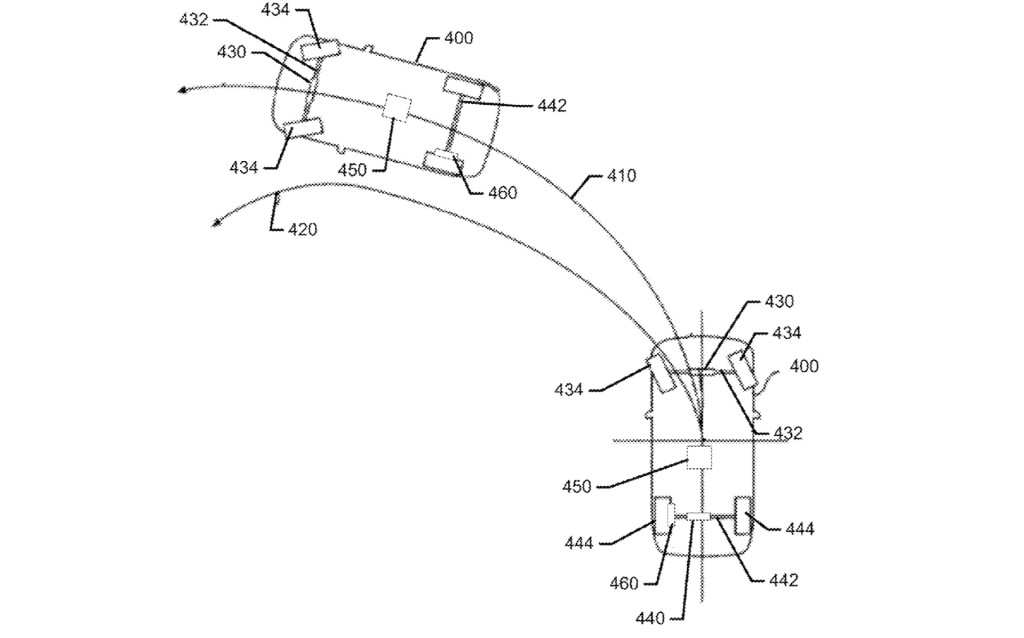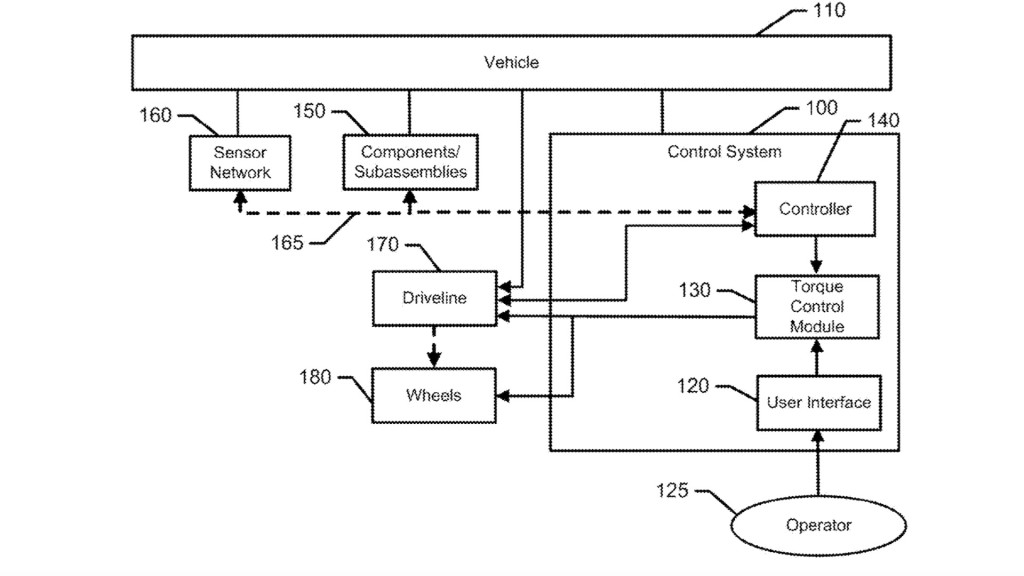Some automakers have turned to all-wheel steering to make vehicles more maneuverable, but Ford wants to patent an alternative solution.
A patent application filed with the United States Patent and Trademark Office (USPTO) describes a way to reduce turning radius on future vehicles by varying torque to individual wheels.

Ford turn-assist mode patent image
In the proposed system, an onboard controller would monitor factors like steering angle and wheel speed to determine if turning-radius reduction will be helpful. This is referred to as "turn-assist mode" in the application.
When activated, this mode would reduce torque to the inside rear wheel, generating added yaw, or sideways movement. It then would apply more torque to both front wheels to help balance out that yaw and pull the vehicle out of the turn. That sounds a bit like the torque-vectoring systems already used in some production cars to improve handling, but specifically aimed at decreasing turning radius.

Ford turn-assist mode patent image
The torque reduction for the inside rear wheel could be achieved via braking, so this system could be used in front-wheel-drive vehicles without driven rear axles, Ford noted in the application. In all-wheel-drive applications, the rear axle could also be disconnected from the front axle in turn-assist mode, the application suggests.
As with all patent applications, it's unclear if Ford will put torque-based turn assist into production. This isn't the first application for a patent of this category from the automaker; earlier this year it filed for a tank turn feature, and it has filed others describing the use of four-wheel-steering to turn the front and rear wheels in opposite directions for an off-roading crawling feature. These in turn seem to build on a four-wheel-steering patent application published in 2019.